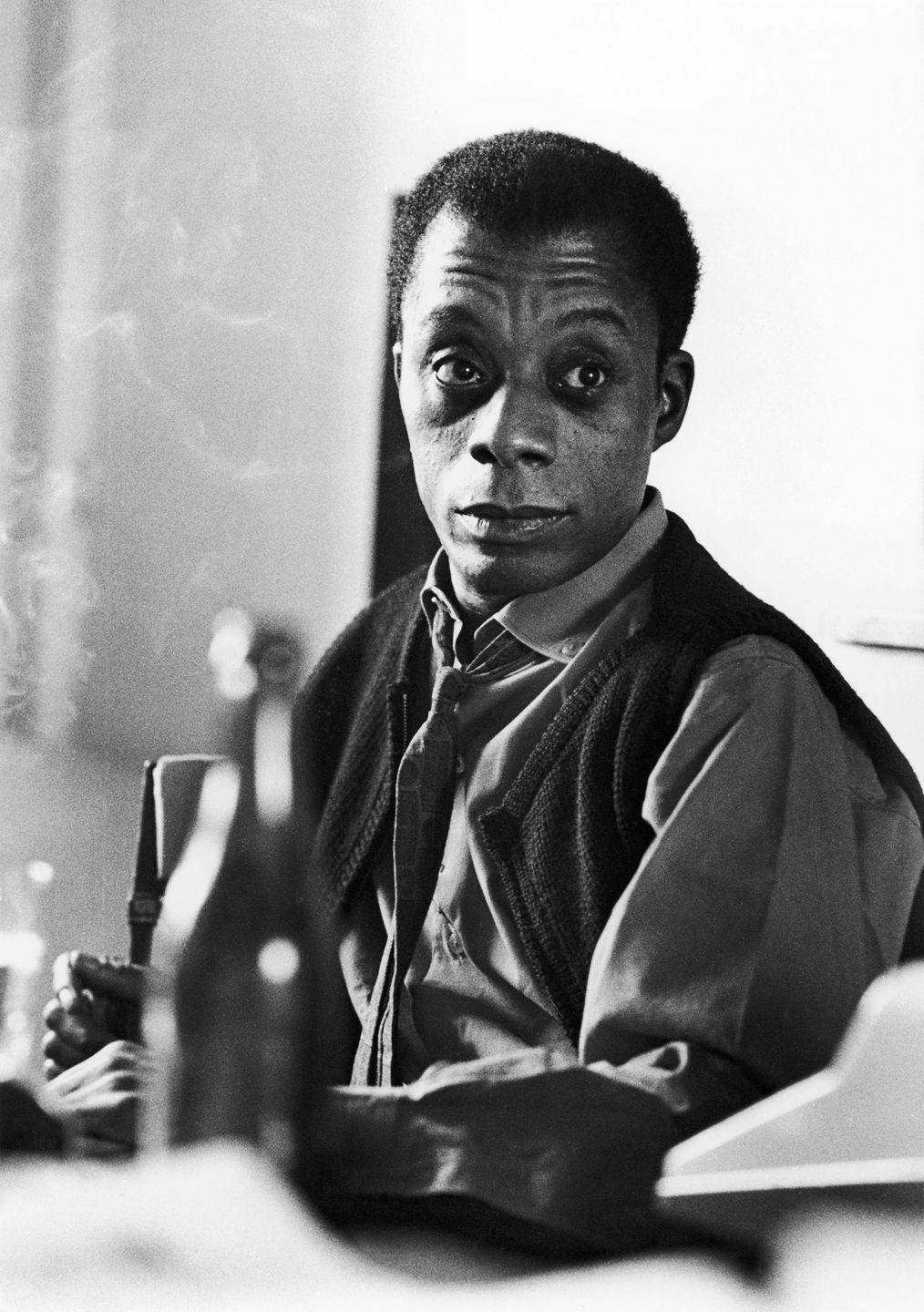'Feud' Episode 5 Explores Truman Capote and James Baldwin's Fascinating Relationship
"Hearst Magazines and Yahoo may earn commission or revenue on some items through these links."
FX's Feud: Capote vs. The Swans has no shortage of New York City icons. It was just a matter of time before acclaimed writer and civil rights activist James Baldwin joined the fray. The chaos that was unleashed by Capote's Esquire short story, “La Côte Basque, 1965," continued to ripple throughout high society. In episode 5, “The Secret Inner Lives of Swans,” Capote succumbs to the fallout of his audacious story—using alcohol and drugs to cope with the pain. Even though Capote's allies were dwindling, Baldwin makes an appearance that gives us insight into Capote's softer side—sweeping him away for a day about town.
The Harlem-born Baldwin is portrayed by Chris Chalk, who brilliantly brings the revolutionary writer to life. He saunters back into Capote's life to offer the writer some pointed critiques and soothing reassurances. Baldwin was never known for mincing his words—and he didn't hold back during his jaunt with Capote through Manhattan. His unflinching honesty with Capote encourages the disgraced author to pick up his pen again and turn the short stories into a longer novel. “Your book, it is the firing squad that killed the Romanovs,” Baldwin says in Feud. “It’s your guillotine that beheaded Marie Antoinette.”
Who Was James Baldwin?
Feud took inspiration from Baldwin's essays to capture the spirit of his relationship with Capote. Baldwin was an academic, bohemian, poet, a passionate public speaker, and a queer Black man in America during the height of the civil rights movement. “He was an advocate not just for Black people, but for queer people, for people being themselves and being safe,” Chalk told The Hollywood Reporter. Baldwin was a natural fit for Feud—he was an outcast like Capote, but it was his unabashed embrace of his sexuality and race that kept him on the fringes of society. Although they weren't socially accepted at the time, Capote and Baldwin were already lauded contemporaries of the literary world. Baldwin penned the explosive Notes of a Native Son and a novel, Giovanni's Room, by the time of his fantasized visit to Capote in the 1970s.
In a 1959 essay titled, "The Discovery of What It Means to be an American," Baldwin wrote, “I left America because I doubted my ability to survive the fury of the color problem here. (Sometimes I still do.)” Baldwin had moved to Paris in the 1950s to pursue his writing in a country where his race and sexuality were of less contention than the United States. Baldwin eventually returned to New York City during the height of the civil rights movement and participated in a stirring public debate with William F. Buckley about the American Dream, which roused impassioned listeners.
As for Feud? By the time the fictionalized visit between Baldwin and Capote took place, Baldwin had already retired to southern France.

Were James Baldwin and Truman Capote Truly Friends?
Jon Robin Baitz, a writer for Feud, told Vanity Fair that episode 5 is “a play, really—an imagined encounter. They knew each other, but there was no real love lost between them in actuality.” Judging by the many critiques Baldwin and Capote made publicly about each other, the two wordsmiths could have their own season of Feud.
Capote did not approve of Baldwin's foray into fiction writing. “I loathe Jimmy’s fiction: it is crudely written and of a balls-aching boredom,” Capote wrote to literature scholar Newton Arvin in 1962. With just as much incisiveness as he practiced when writing about his Swans, Capote also dug into Baldwin's nonfiction. “I do sometimes think his essays are at least intelligent, although they almost invariably end on a fakely hopeful, hymn-singing note.”
But Capote had praise to spare, too. In response to a particularly scathing review of Baldwin's essays—"Nothing Personal," which appeared in the The New York Review of Books—Capote defended Baldwin and co-contributor Richard Avedon. In his published response, “Avedon’s Reality,” Capote says that he was both “interested and startled” by the critical review. “Surely Brustein’s comments regarding the Avedon-Baldwin collaboration is as distorted and cruel as he seems to find Avedon’s photographs. Brustein is entitled to think that Avedon and Baldwin are misguided; but believe me he is quite mistaken when he suggests, as he repeatedly does, that they are a pair of emotional and financial opportunists.”
Baldwin and Capote died in 1987 and 1984, respectively, from health problems. Thankfully, through the magic of television, we can see them together—sharing ideas and trading quips in Feud.
You Might Also Like
